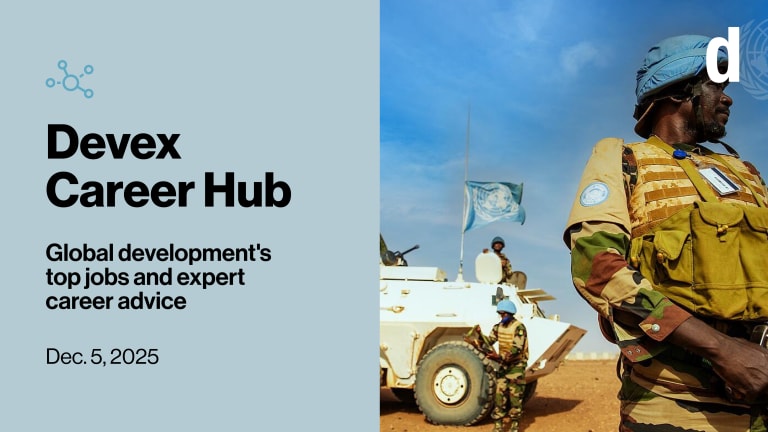
The U.S. Agency for International Development will create a new policy bureau and push budgeting, procurement and HR reforms to help staff become “development entrepreneurs,” according to Rajiv Shah.
The changes should encourage staff to be innovators, risk-takers and problem solvers, the USAID administrator said May 5.
This June, the agency will reform its talent and human resource management systems to “see at USAID a renewed focus on talent – with HR reforms that can help us bring in people from more varied backgrounds who share one trait: they are problem solvers,” Shah said in a speech delivered at a town-hall meeting on the campus of the George Washington University.
In June, the agency will also roll out the first phase of “meaningful” procurement reforms, Shah said. The goal is to “work better with our implementing partners,” he added.
USAID will establish a new policy bureau and roll out “budget reforms” this month, the USAID chief added, without elaborating.
Restoration of USAID’s policy planning shop has already been ongoing for months, according to The Cable’s Josh Rogin. However, “(w)hether or not USAID will get its budget authority back as well is not yet decided, part of the ongoing policy review led by USAID and the State Department,” Rogin says.
Shah identified four “core areas” that will be the focus of the agency’s work.
First, USAID will reaffirm its commitment to helping achieve the Millennium Development Goals “by building sustainable systems to support healthy and productive lives,” Shah said. To ensure its investments are sustainable, the agency will focus on building local capacity, measuring and monitoring results, developing robust service-delivery systems, and promoting well-governed institutions and sound policies.
The agency will also invest in country-owned models of inclusive growth and development success, which requires aligning the “complementary assets of our aid, trade, investment, and diplomatic agencies around the unique, local levers of growth,” Shah explained.
Third, USAID will help design and deliver scientific and technological innovations.
And fourth, the agency will continue to utilize its expertise in conflict and post-conflict situations.
“We have decades of experience working in conflict situations and complex emergencies. This was the agency’s core strength long before Iraq and Afghanistan and it remains one today,” Shah said. “We want to bring this expertise to bear in the conflict and post conflict countries where security is elusive and the development challenges are daunting – places like Afghanistan.”








